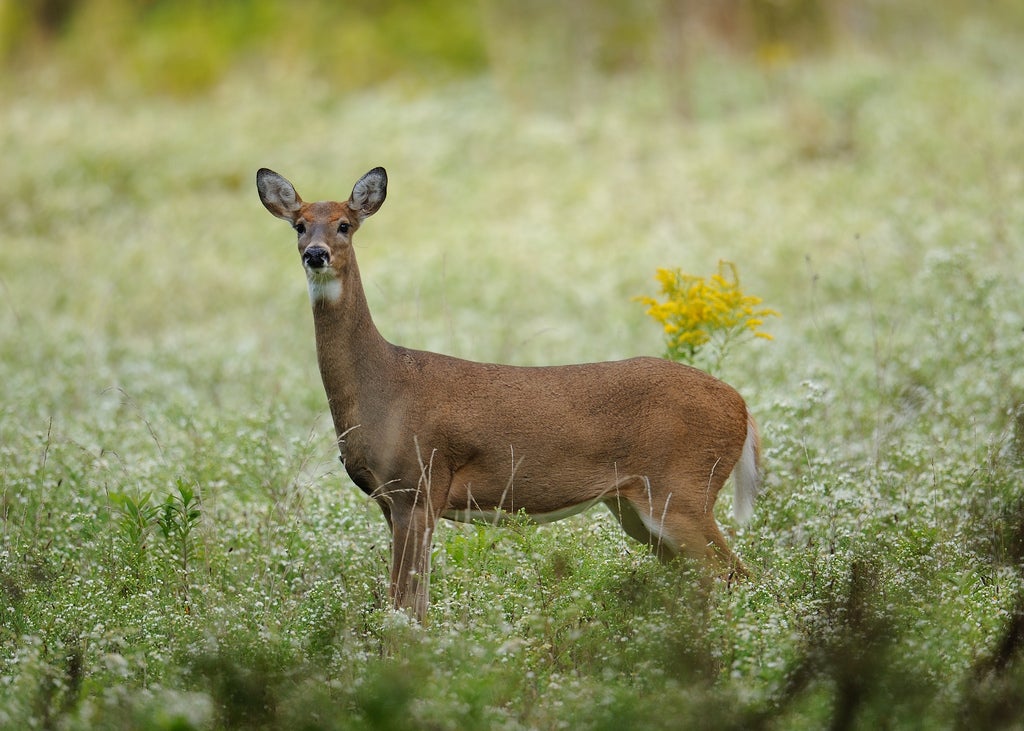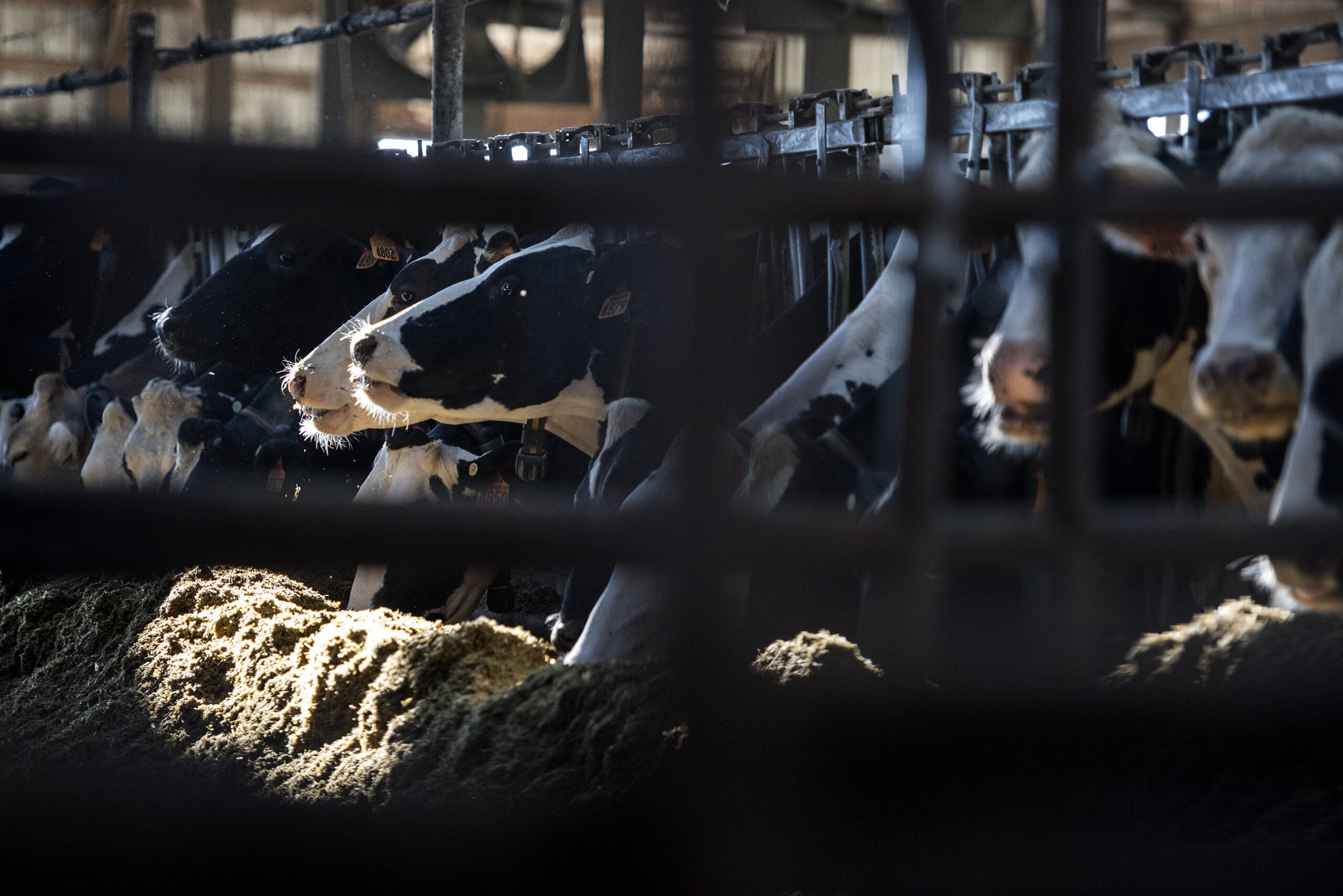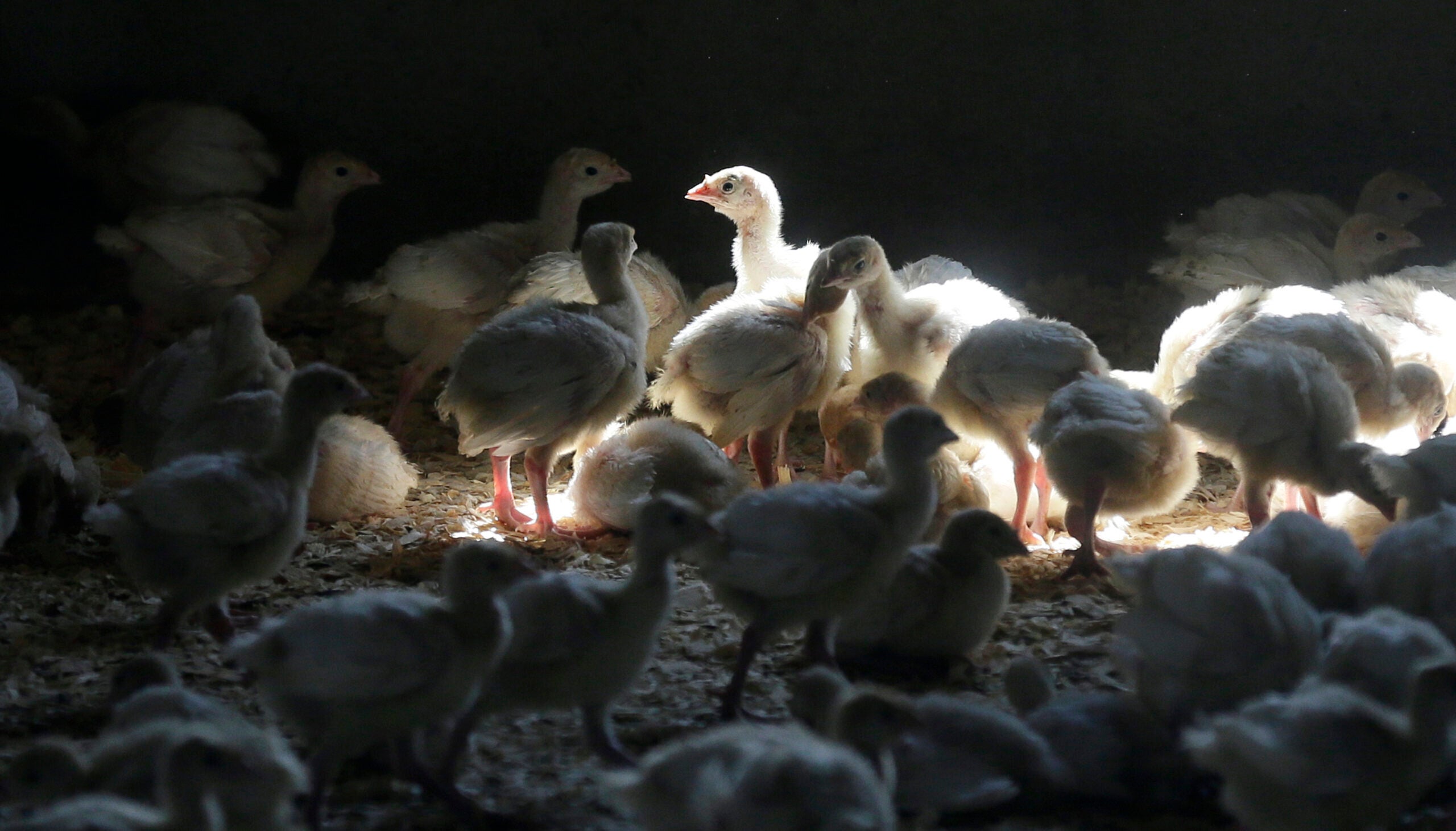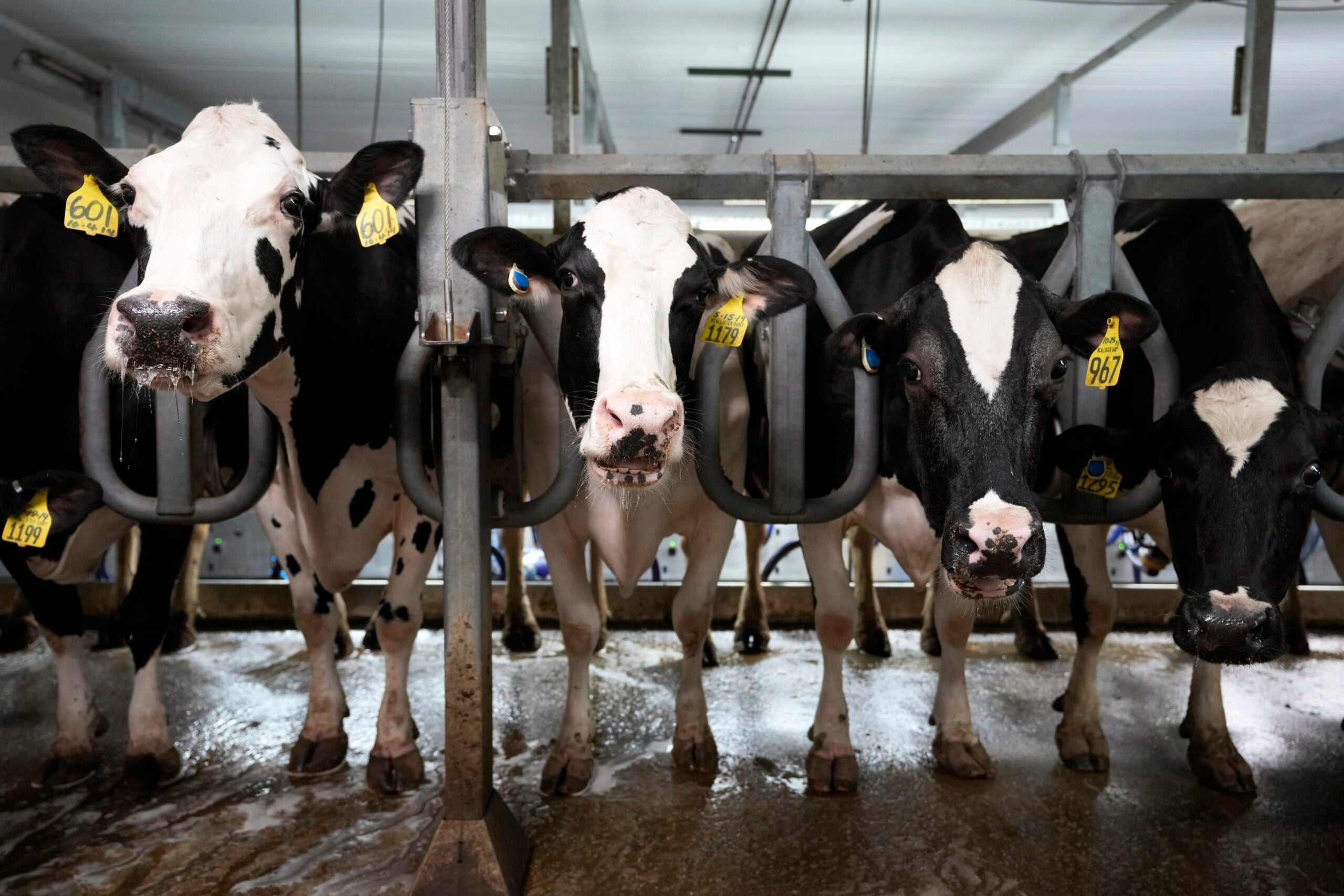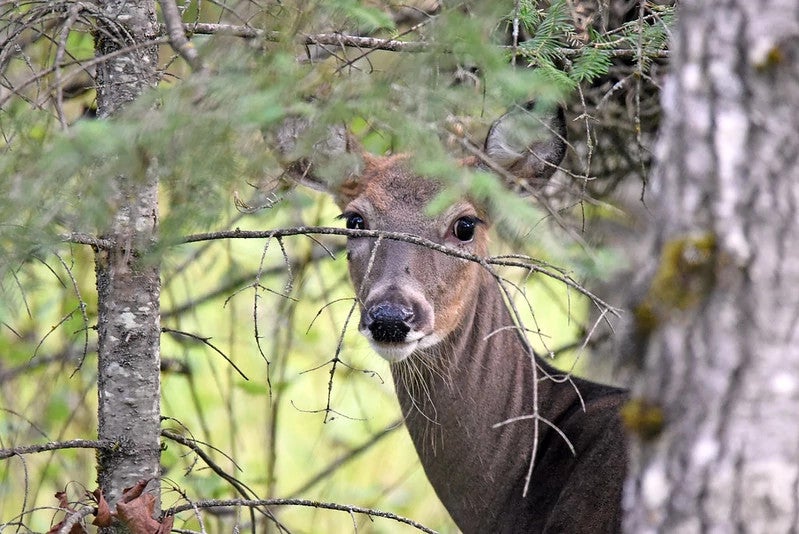A committee in one northern Wisconsin county is recommending local regulations to prevent the spread of a deadly deer disease, but deer farmers say additional regulations won’t stop the spread of chronic wasting disease.
Bayfield County formed a study committee last year to examine whether local regulation was needed after Dirk and Jane Stolz, the owners of a Washington County deer herd, moved animals from their farm to a northern Wisconsin hunting preserve last year. The Milwaukee Journal Sentinel reported that state and federal officials killed those deer after an animal tested positive for CWD on the owners’ southern Wisconsin farm.
None of the deer on the Bayfield County hunting preserve tested positive for the disease, which is known to be transmitted through saliva, urine and feces. Even so, Fred Strand, the chair of the county’s study committee, said they developed recommendations to be proactive.
News with a little more humanity
WPR’s “Wisconsin Today” newsletter keeps you connected to the state you love without feeling overwhelmed. No paywall. No agenda. No corporate filter.
“Bayfield County wants to do everything it can in its power to make sure that our deer population stays healthy and hopefully free of chronic wasting disease,” said Strand.
The committee recently presented its final report with a list of nine recommendations that include adopting local regulations that would require added fencing of new deer farms and place limits on the movement of live animals to the county. The regulations would require annual inspection of fencing at all existing and new farms. Right now, the Wisconsin DNR is required to inspect fencing for whitetail deer farms once every 10 years.
The committee also would like to see the county prevent the transport of live animals within 10 miles of a CWD-positive detection in the last five years.
“There are a couple of recommendations there that would deal with fencing and testing of any deer that would be brought into the county,” said Strand. “We don’t feel that the state regulations are adequate, and we would like to see the state make some more stringent regulations on the movement of live deer.”
Former Republican Gov. Scott Walker directed the Wisconsin Department of Natural Resources and the Wisconsin Department of Agriculture, Trade and Consumer Protection to draft emergency rules to limit the spread of CWD last year, but none are in place.
Walker asked DATCP to prevent the movement of live animals from deer farms and hunting preserves in CWD-affected counties. However, the agency’s citizen board voted to take no action on the governor’s request. Meanwhile, the Legislature’s rules committee suspended part of the DNR’s emergency rule that would have banned hunters from moving dead deer out of CWD-affected counties. The remaining portion of the rule to require enhanced fencing of deer farms lapsed earlier this year.
State agencies have said they’re exploring rules to limit the spread of the disease.
“We’re just looking in general at rules to look at (and) how we may be able to move forward,” said Dr. Darlene Konkle, acting state veterinarian. “But, at this point, we’re just not even in a preliminary stage.”
Konkle noted the only farm-raised deer that can be moved in Wisconsin are those enrolled in the state’s CWD herd status program. She said those facilities are required to follow regulations for moving live deer, including health inspections prior to moving animals to another herd. There are currently 144 enrolled in the program out of the state’s 331 registered farms and hunting ranches, according to state data.
Laurie Seale, vice president of Whitetails of Wisconsin, said Bayfield County’s recommendations are unnecessary because deer farms are already regulated by the state.
“We feel that there is sufficient rules in place and there should not be any extra enforcement at the county levels,” said Seale.
Seale said they’re exploring whether the proposed local regulations are legal. Strand said he feels the county has a solid legal basis to pursue additional oversight.
“At this point, the county hasn’t chosen to do any of those yet, but I hope in the very near future they will choose to enact those regulations,” said Strand. “I feel very comfortable that we’re on solid ground to do so.”
However, Seale argues additional regulations at any level would do little to stop the spread of CWD, adding that research rather than management may provide a potential solution to stopping the disease’s spread.
“That’s why our industry is very supportive of the CWD-resistant research right now,” she said.
Seale said farmers could “breed out” deer that are genetically susceptible to the disease similar to scrapie in sheep. The degenerative disease is fatal in sheep, affecting their central nervous system. Owners have been urged to restock flocks with genetically resistant animals, according to the Animal and Plant Health Inspection Service of the U.S. Department of Agriculture.
Seale also said deer farmers have been unfairly targeted while hunters are currently free to transport deer they harvest to any county in the state regardless of whether it came from a CWD-affected area.
The recommendations from the Bayfield County committee include the creation of a carcass disposal program and a public education program that encourages hunters to test deer for CWD. Strand said the county is urging surrounding counties to explore similar options to prevent the disease’s spread.
The committee’s recommendations are being reviewed by multiple committees before they will be brought to the full Bayfield County board for discussion and possible action at its meeting on July 30.
Wisconsin Public Radio, © Copyright 2026, Board of Regents of the University of Wisconsin System and Wisconsin Educational Communications Board.

